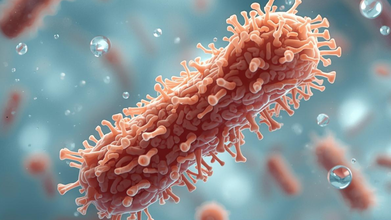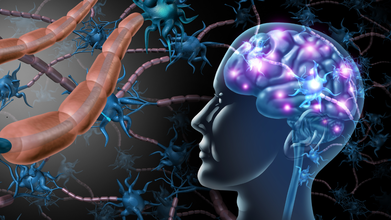- Health Conditions A-Z
- Health & Wellness
- Nutrition
- Fitness
- Health News
- Ayurveda
- Videos
- Medicine A-Z
- Parenting
How to Tell If Your Low Blood Pressure Is Dangerously Low? All On Living With Hypotension

How to Tell If Your Low Blood Pressure Is Dangerously Low? All On Living With Hypotension
Low blood pressure, also known as hypotension, is usually considered a sign of good health and low risk for cardiovascular disease. However, there are times when persistently low blood pressure or a sudden drop can be a sign of an underlying health issue that needs medical attention. Knowing when low blood pressure becomes a problem can help ensure timely intervention and proper care.
Blood pressure readings consist of two numbers:
Systolic pressure (the top number) indicates the pressure in your arteries when your heart pumps blood. Diastolic pressure (the bottom number) reflects the pressure in your arteries while your heart is resting between beats.
The normal reading is usually 120/80 mmHg or less. Hypotension is clinically defined as having blood pressure readings less than 90/60 mmHg. In some patients, low blood pressure will have no adverse health consequences and therefore does not need to be treated. In extreme cases, however, it can limit the flow of oxygen and nutrients to vital organs, resulting in potentially life-threatening complications, such as shock.
Causes of Low Blood Pressure
Hypotension can result from many factors. Some of the factors that cause hypotension are as follows:
- Insufficient fluid intake or excessive fluid loss can lead to decreased blood volume and hence hypotension.
- An injury or internal bleeding may result in hypotension. This happens because blood pressure becomes significantly reduced.
- Some hormonal changes along with the increased blood requirement during pregnancy also causes hypotension.
- Issues like heart failure or arrhythmias can impair blood circulation and result in low blood pressure.
- Certain drugs, including diuretics, antidepressants, and blood-pressure-lowering medications, can induce hypotension.
Symptoms of Hypotension
While low blood pressure may not always cause symptoms, it can sometimes be associated with:
- Dizziness or fainting
- Fatigue and weakness
- Blurred vision
- Nausea
- Confusion or difficulty concentrating
- Shallow breathing
- Palpitations
If the person experiences these symptoms, with the recorded blood pressure reading, the medical services have to be consulted.
Types of Low Blood Pressure
1. Orthostatic Hypotension: This is a kind of hypotension that appears as a result of decreased blood pressure when a person is standing up from lying down or sitting position and primarily affects elderly people.
2. Postprandial Hypotension: This is a drop in blood pressure after eating, more common in older people.
3. Neurally Mediated Hypotension: It is triggered by standing for long periods. This type can affect younger people and is associated with miscommunication between the brain and heart.
When Is Low Blood Pressure Dangerous?
There is no such thing as a universal threshold for very low blood pressure, but a blood pressure reading below 90/60 mmHg can be dangerous and require prompt medical assessment if accompanied by symptoms of fainting, confusion, or shortness of breath. Sudden falls in blood pressure may point to potentially serious underlying causes, which can include:
- Internal bleeding
- Sepsis (severe infection)
- Allergic reactions
Management and Treatment
Treatment of hypotension depends on its cause:
- Hydration Drinking more water can help against dehydration-related hypotension.
- Compression Stockings: These can improve circulation and reduce blood pooling in the lower limbs.
- Dietary Changes: Increasing salt intake under supervision can help increase blood pressure
- Medication Changes: The physician may need to reduce dosages of some medications or replace prescriptions.
For more severe cases, physicians might also administer fludrocortisone or midodrine to increase blood pressure. Shock from hypotension should be treated promptly to ensure proper function of organs.
Can Hypotension Cause Fatigue?
Chronic fatigue syndrome has also been associated with low blood pressure. Prolonged tiredness, despite adequate rest, may require reassessment of blood pressure levels. Fatigue secondary to hypotension will impact functionality and thus requires assessment and treatment of the cause.
When to Seek Medical Care
If your blood pressure readings are low consistently and without symptoms, you probably have nothing to worry about. If you do have symptoms like dizziness, fainting, or confusion, you need to go to the doctor. Blood pressure checks are usually conducted regularly. Once you are aware of your own normal baseline, you will know right away when there is something wrong.
Lifestyle Tips That Support Normal Blood Pressure
- Other than directly treating hypotension, a healthy lifestyle overall would promote balanced blood pressure levels.
- Exercise regularly; it promotes cardiovascular health and can help regulate blood pressure.
- Focus on nutrient-dense foods rich in iron, B vitamins, and electrolytes to support circulatory health.
- Excessive alcohol consumption dehydrates the body and lowers blood pressure.
- Practices like yoga and meditation can help maintain a healthy blood pressure range.
Danish Study Links Hidden Bacteria In The Gut To Colorectal Cancer

Researchers from Denmark and Australia have discovered a new virus in the gut that can contribute to the development of colorectal cancer in the body, one of the leading causes of death in the world.
Using genetic sequencing, researchers studied the gut bacteria of cancer patients in a large Danish study and found that Bacteroides fragilis, an anaerobic, gram-negative, pleomorphic to rod-shaped bacterium, often carried a bacteriophage — a virus that infects and reproduces inside bacteria.
This allows it to produce a toxin (BFT) in the colon, promoting chronic inflammation, cell proliferation and tumor growth in the region.
People with colorectal cancer were twice as likely to have this bacteriophage in their gut bacteria. The virus also appears to be previously unknown and does not match any recorded type so far.
Although the first finding came from a small group, it was later confirmed in a larger study of 877 people with and without colorectal cancer. The results suggest that viruses hiding inside B. fragilis may play a role in cancer development.
Microbiologist Flemming Damgaard, from Odense University Hospital in Denmark: "It has been a paradox that we repeatedly find the same bacterium in connection with colorectal cancer, while at the same time it is a completely normal part of the gut in healthy people.
"We have discovered a virus that has not previously been described and which appears to be closely linked to the bacteria we find in patients with colorectal cancer."
What Is Colon Cancer?
Colon cancer develops from polyps in the colon or rectum, often taking years to show symptoms. The cancer begins when small growths called polyps form on the inner lining of the colon or rectum. Over time, changes in the DNA of these cells can cause the polyps to become cancerous.
As abnormal cells multiply, they replace healthy cells and eventually form a mass known as a tumor. This process develops slowly, often taking up to ten years for a precancerous polyp to turn into cancer and begin showing symptoms.
The American Cancer Society notes that colorectal cancer impacts around 1.9 million people every year.. In India, it is the fourth most common cancer among both men and women. In 2022, there were 64,863 new cases and 38,367 deaths.
Projections suggest that incidence will continue to rise by 2026, reflecting both lifestyle changes and improved detection.
Colon cancer can be difficult to detect because it often develops without obvious symptoms. According to experts , these are the three things you should do to protect yourself:
1. Timely risk screening
2. Knowing your cancer family history
3. Acting on early symptoms
What Early Symptoms Should You Look Out For?
Colon cancer rarely announces its presence with dramatic symptoms. More often, it whispers — through changes in bowel habits, subtle abdominal discomfort, or unexplained weight loss.
Some of the most commonly missed early signs include:
- Persistent changes in bowel movements: Chronic constipation or diarrhea often dismissed as dietary effects.
- Blood in stool: Bright red or dark blood should not be ignored.
- Unexplained weight loss: Especially when unintentional.
- Abdominal cramps or bloating: Misinterpreted as common digestive issues.
Persistent changes in bowel habits, especially if they last more than a few days, must be taken seriously. Narrow or ribbon-shaped stools may indicate a tumor partially blocking the colon.
Experts Reveals How The Placenta Increases Schizophrenia Risk In Adults

Credit: Canva
Schizophrenia is a severe, chronic brain disorder that can lead psychosis, hallucinations, delusions, disorganized thinking and reduced emotional expression. It can affect how a person thinks, feels and behaves, making it hard to distinguish reality.
The chronic neurological condition affects less than one percent of the global population and typically emerges in late teens to early thirties, requiring lifelong treatment.
However, Canadian researchers have now pointed towards the placenta as a possible source of early indicators of schizophrenia risk.
According to the scientists, the placenta can "record" what happens during pregnancy and can reflect both healthy and unhealthy conditions for the baby, a phenomenon known as the placenta-brain axis.
The theory suggests that when the placenta is negatively affected, brain development may also be harmed in both the short and long term and increase the baby's risk of developing the lifelong condition.
Multiple large-scale studies have found that in pregnancies where babies are born with low birth weight, certain genetic markers in the placenta are altered. These changes are strongly linked to a higher risk of schizophrenia and other developmental problems, such as autism and learning difficulties.
There is also strong evidence that using cannabis during pregnancy can harm a baby’s brain development and increase the risk of schizophrenia.
However, while cannabis use during pregnancy is known to be linked to low birth weight, it is still unclear whether cannabis exposure affects the same placental genetic markers associated with schizophrenia.
How Is Brain Impacted During Schizophrenia?
In schizophrenia, the brain experiences structural and chemical changes that disrupt normal thinking, emotions, and behaviour. Research shows that people with schizophrenia often have reduced grey matter volume, particularly in areas involved in memory, emotion, and decision-making, like the hippocampus and prefrontal cortex.
Abnormalities in neurotransmitters, especially dopamine and glutamate, also play a key role, leading to symptoms such as hallucinations, delusions, and cognitive difficulties. Connectivity between different brain regions may become impaired, affecting the brain's ability to process information smoothly.
These changes typically emerge gradually, often beginning in late adolescence or early adulthood, and vary significantly from person to person.
How To Identify Schizophrenia?
Schizotypal Personality Disorder is part of Cluster A personality disorders. Other disorders in this cluster include paranoid personality disorder and schizoid personality disorder. Individuals with this condition struggle with social and interpersonal skills, especially when forming close relationships. This occurs alongside eccentric behaviour and perceptual or cognitive distortions.According to the DSM-5 (Diagnostic and Statistical Manual of Mental Disorders, 5th Edition), schizophrenia is diagnosed based on a set of specific symptoms. Here's the list of core symptoms:
- Delusions – strong false beliefs not based in reality (e.g., believing you are being persecuted or have special powers).
- Hallucinations – hearing, seeing, or sensing things that aren't actually there (most commonly auditory hallucinations).
- Disorganised speech – frequent derailment, incoherence, or illogical conversation.
- Grossly disorganised or catatonic behavior – unpredictable agitation, inappropriate behaviour, or lack of movement/responsiveness.
- Negative symptoms – diminished emotional expression, reduced motivation (avolition), reduced speech (alogia), social withdrawal, or inability to experience pleasure (anhedonia).
Scientists Find Protein Inside The Body That Reverses Brain Aging

Credit: Canva
Researchers at the National University of Singapore (NUS Medicine) have found a key protein in the brain which can help to regenerate neural stem cells and improve aging-associated memory decline.
Known as cyclin D-binding myb-like transcription factor 1 or DMTF1, the scientists found that this protein's levels are repressed in the “aged” neural stem cells and that restoring it is sufficient to restore the regeneration capabilities of such neural stem cells.
Assistant Professor Ong Sek Tong Derrick explained: "Impaired neural stem cell regeneration has long been associated with neurological ageing. Inadequate neural stem cell regeneration inhibits the formation of new cells needed to support learning and memory functions.
"While studies have found that defective neural stem cell regeneration can be partially restored, its underlying mechanisms remain poorly understood. Understanding the mechanisms for neural stem cell regeneration provides a stronger foundation for studying age-related cognitive decline."
How Does DMTF1 Protect Against Memory Decline And Dementia?
To understand how DMTF1 works, researchers looked at telomeres — the protective DNA caps at the ends of chromosomes. As we age and our cells divide, telomeres naturally become shorter. When they get too short, cells stop dividing and trigger inflammation. Due to this phenomenon, telomeres are often seen as a biological clock that cannot be reversed.But DMTF1 seems to bypass this limit by helping neural stem cells to keep multiplying, even during brain aging. It does this by switching on helper genes that promote cell growth through a process called chromatin remodeling.
Importantly, this process can restore the growth of stem cells that had already been damaged by telomere shortening, showing that the effects of aging may not always be permanent.
The researchers plan to further explore if elevating DMTF1 expression can regenerate neural stem cell numbers as well as improve learning and memory under the conditions of telomere shortening and natural ageing, without increasing the risk of brain tumours.
What Is Alzheimer’s Disease?
Alzheimer's disease is one of the most common forms of dementia and mostly affects adults over the age of 65.
About 8.8 million Indians aged 60 and above are estimated to be living with Alzheimer's disease. Over seven million people in the US 65 and older live with the condition and over 100,00 die from it annually.
Alzheimer's disease is believed to be caused by the development of toxic amyloid and beta proteins in the brain, which can accumulate in the brain and damage cells responsible for memory.
Amyloid protein molecules stick together in brain cells, forming clumps called plaques. At the same time, tau proteins twist together in fiber-like strands called tangles. The plaques and tangles block the brain's neurons from sending electrical and chemical signals back and forth.
Over time, this disruption causes permanent damage in the brain that leads to Alzheimer's disease and dementia, causing patients to lose their ability to speak, care for themselves or even respond to the world around them.
While there is no clear cause of Alzheimer's disease, experts believe it can develop due to genetic mutations and lifestyle choices, such as physical inactivity, unhealthy diet and social isolation.
Early symptoms of Alzheimer's disease include forgetting recent events or conversations. Over time, Alzheimer's disease leads to serious memory loss and affects a person's ability to do everyday tasks.
There is no cure for this progressive brain disorder and in advanced stages, loss of brain function can cause dehydration, poor nutrition or infection. These complications can result in death.
Can You Detect Alzheimer's Early On?
The US Food and Drug Administration has approved the use of a blood test which can help diagnose Alzheimer’s disease in adults aged 55 and above.
The blood test, known as Lumipulse, can detect amyloid plaques associated with Alzheimer’s disease and has proven to be a “less invasive option” that “reduces reliance on PET scans and increases diagnosis accessibility.”
FDA Commissioner Martin A. Makary said of the landmark decision, "Alzheimer’s disease impacts too many people, more than breast cancer and prostate cancer combined.
"Knowing that 10 percent of people aged 65 and older have Alzheimer's, and that by 2050 that number is expected to double, I am hopeful that new medical products such as this one will help patients."
It remains unclear when this test will be available for commercial use across the world.
© 2024 Bennett, Coleman & Company Limited

